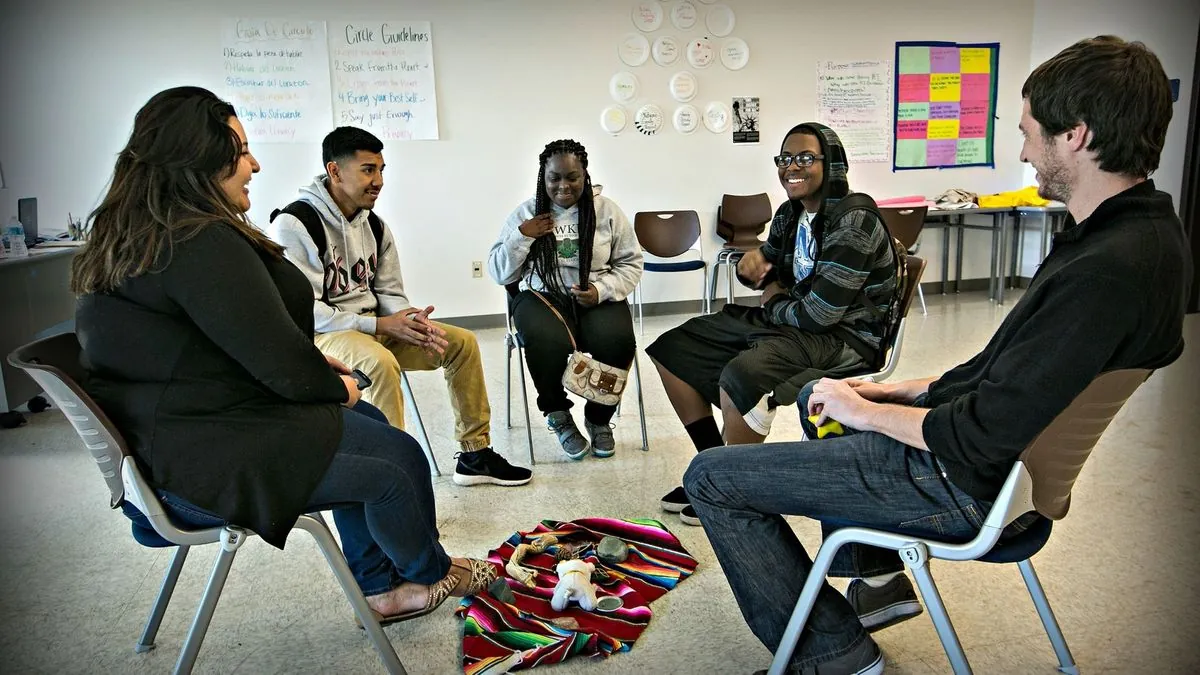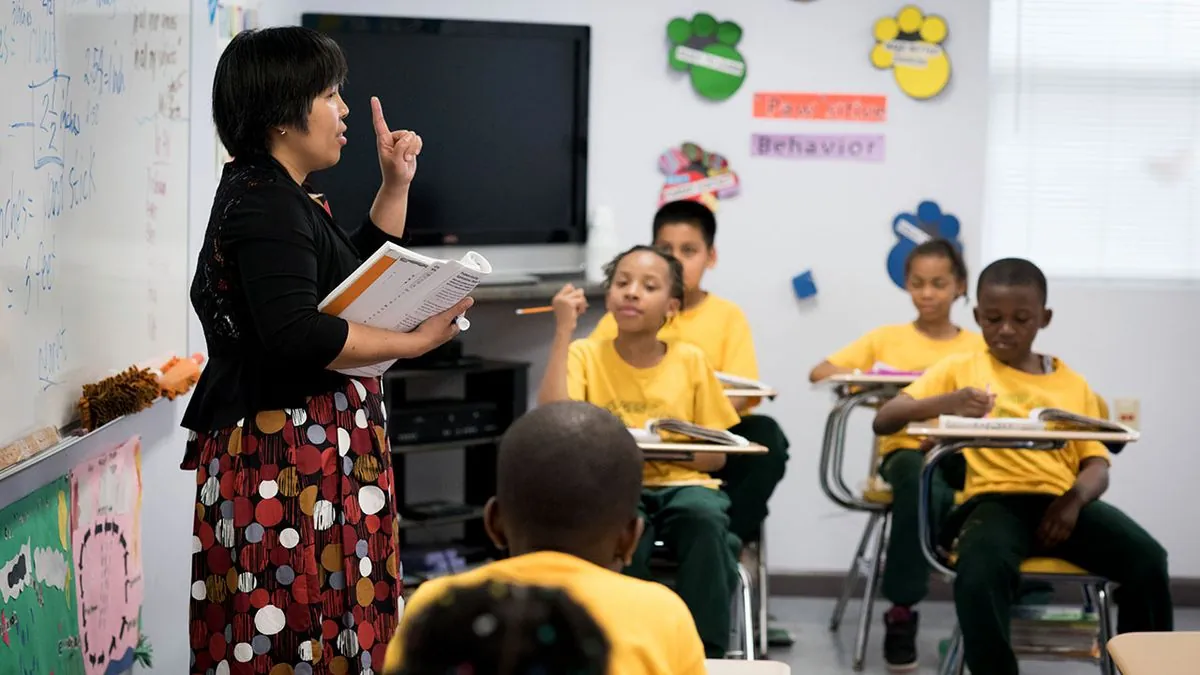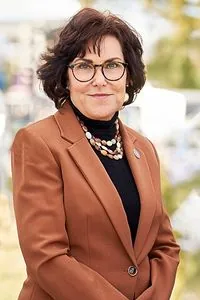Detention Drama Unveils Systemic Traps for Black Youth
A diverse group of Black students in detention face unexpected challenges in Dave Harris's play "Exception to the Rule." The Studio Theatre production subtly explores societal barriers and the struggle for escape.

In Dave Harris's thought-provoking play "Exception to the Rule," currently staged at Studio Theatre, a group of Black students find themselves trapped in a detention room that serves as a microcosm of larger societal issues. The production, running through October 27, 2024, offers a nuanced exploration of systemic challenges faced by Black youth, drawing subtle parallels to the classic 1985 film "The Breakfast Club."
The setting, a basement-level classroom with high windows and turquoise-painted cinder-block walls, evokes a sense of submersion and confinement. This clever set design by Tony Cisek serves as a metaphor for the societal constraints often placed on young Black individuals in urban environments. The use of cinder blocks, which became popular in construction during the early 20th century, adds to the institutional feel of the space.
The ensemble cast brilliantly portrays a diverse group of characters, each embodying different aspects of the Black experience. Mikayla, played by Khalia Muhammad, exudes confidence as an "around-the-way girl," a term popularized by LL Cool J's 1990 hit song. Steven Taylor Jr.'s Tommy attempts to catch her attention, while Jacques Jean-Mary's Dayrin simmers with complex emotions.

The arrival of Erika, portrayed by Sabrina Lynne Sawyer, introduces the concept of the "exception" - a college-bound student whose presence challenges preconceptions. This character touches on the idea of "respectability politics," a concept debated within Black communities since the early 20th century. Shana Lee Hill's Dasani and Khouri St.Surin's Abdul round out the cast, with Abdul's admiration for "The Cosby Show" ideals reflecting the impact of media representation on youth aspirations.
As the play progresses, a sense of unease grows. Strange occurrences, such as glitching intercom announcements and lack of cell service, hint at a more sinister situation. These elements serve as metaphors for the invisible barriers and systemic issues that often hinder the progress of Black youth in society.
The production touches on various social issues, including the school-to-prison pipeline, a phenomenon where certain policies push students out of school and into the criminal justice system. It also explores the concept of code-switching, where individuals alternate between different linguistic styles or dialects depending on their social context.
Director Miranda Haymon approaches the material with a subtle touch, allowing the audience to connect with the characters as individuals rather than mere representations of social issues. This approach enhances the play's exploration of how education can serve as a means of social mobility, a concept that has been central to American society since the 19th century.
"I just want to be like Theo Huxtable, you know? Living that Cosby Show life."
"Exception to the Rule" ultimately challenges viewers to consider how societal rules and expectations can trap individuals based on their identity. It prompts reflection on the ongoing struggle for equity in education and the broader societal structures that continue to present obstacles for Black youth.
Through its compelling narrative and nuanced performances, the play offers a poignant commentary on the complexities of race, class, and opportunity in contemporary America. It serves as a reminder that the path to true equality often requires questioning and dismantling the very systems that claim to provide opportunity for all.


































